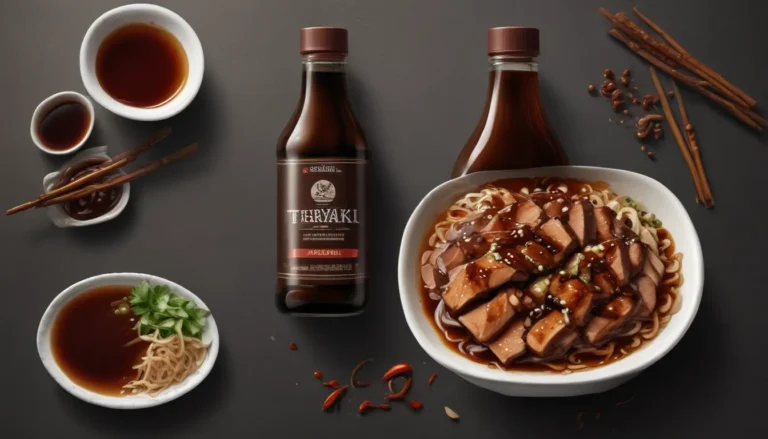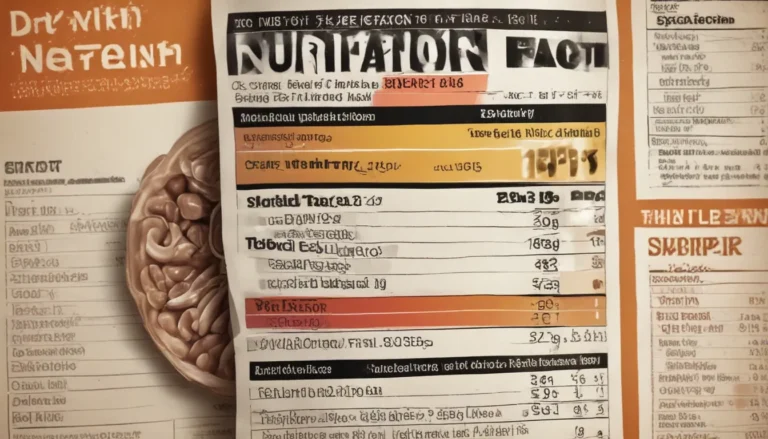The pictures in our articles might not always show exactly what the text is talking about. We use these images to make the article more interesting and eye-catching. They are there to add to the text, but not to replace it or show every detail.
Kangkong, also known as water spinach or Chinese spinach, is a leafy green vegetable that has taken the culinary world by storm. Hailing from Southeast Asia, kangkong is not just delicious but also incredibly nutritious, making it a must-have in your diet.
Explore the Nutritional Powerhouse of Kangkong
Kangkong is more than just a simple vegetable – it's a superfood packed with essential nutrients that can benefit your health in numerous ways. From vitamins and minerals to antioxidants and fiber, kangkong offers a wide range of health benefits that can boost your overall wellbeing.
Key Highlights of Kangkong Nutrition
- Superfood Status: Kangkong is rich in vitamins, minerals, and antioxidants, making it a powerhouse of nutrients that are essential for your health.
- Low in Calories, High in Fiber: This vegetable is low in calories, high in fiber, and great for digestion, making it a perfect choice for those looking to maintain a healthy weight.
- Versatile Ingredient: Kangkong is not only nutritious but also versatile in Asian cuisine, adding a unique flavor and texture to dishes.
Dive Deeper into the Nutrients of Kangkong
Rich in Vitamins and Minerals
Kangkong is a treasure trove of essential vitamins and minerals that support various bodily functions. It is an excellent source of vitamin A, vitamin C, vitamin K, and folate, all of which are crucial for maintaining overall health.
Low in Calories, High in Fiber
For those mindful of their calorie intake, kangkong is a great choice as it is low in calories and high in fiber. Including kangkong in your diet can help improve digestion and prevent constipation.
Packed with Antioxidants
Antioxidants are essential for protecting our cells from damage, and kangkong is loaded with antioxidants like beta-carotene and lutein. These compounds play a key role in maintaining optimal health and reducing the risk of chronic diseases.
Essential Minerals
Kangkong is a good source of iron, calcium, and potassium. Iron is important for energy levels, calcium for bone health, and potassium for heart function.
Vitamins B6 and B9
Kangkong also provides vitamins B6 (pyridoxine) and B9 (folate), which are crucial for brain health, red blood cell formation, and energy conversion.
Hydration and More
With a high water content, kangkong helps keep your body hydrated, along with being low in fat and carbs, making it a healthy choice for various dietary needs.
Bringing Kangkong into Your Kitchen
Versatile Uses in Cooking
Kangkong is a versatile vegetable that can be used in a variety of dishes, including stir-fries, soups, and salads. Its mild, slightly bitter taste adds a unique flavor to your meals.
Easy to Grow at Home
If you have a green thumb, you can easily grow kangkong in your garden or even a pot. It thrives in water or moist soil, making it a convenient option for gardening enthusiasts.
A Staple in Asian Cuisine
Kangkong is a common ingredient in Asian dishes, such as Chinese, Filipino, and Thai cuisine. Its crisp texture and unique taste make it a popular choice among home cooks and chefs.
Conclusion – The Nutritional Power of Kangkong
In conclusion, kangkong is a highly nutritious vegetable that offers a plethora of health benefits. Packed with vitamins, minerals, antioxidants, and fiber, it is a valuable addition to any diet. Whether you want to enhance your immune system, boost heart health, or improve digestion, kangkong can help you achieve your wellness goals.
So next time you're at the market, be sure to pick up some kangkong and start incorporating this nutrient-rich vegetable into your meals for a healthier, happier you.
FAQs - Answering Your Questions
Q: Is kangkong low in calories?
A: Yes, kangkong is low in calories, making it an excellent choice for weight management and calorie-conscious individuals.
Q: Can kangkong help improve digestion?
A: Absolutely! Kangkong is rich in fiber, which aids in digestion and promotes a healthy gut.
Q: Is kangkong a good source of vitamins and minerals?
A: Yes, kangkong is packed with essential vitamins and minerals, including vitamin A, vitamin C, iron, and calcium.
Q: How can I incorporate kangkong into my diet?
A: Kangkong can be added to various dishes like stir-fries, soups, and salads. It can also be steamed or sautéed as a side dish.
Q: Can kangkong benefit heart health?
A: Yes, kangkong contains antioxidants and other nutrients that contribute to heart health by reducing inflammation and improving cardiovascular function.
Q: Is kangkong suitable for people with dietary restrictions?
A: Kangkong is generally suitable for most dietary restrictions, but it's always recommended to consult with a healthcare professional or nutritionist if you have specific dietary concerns.






